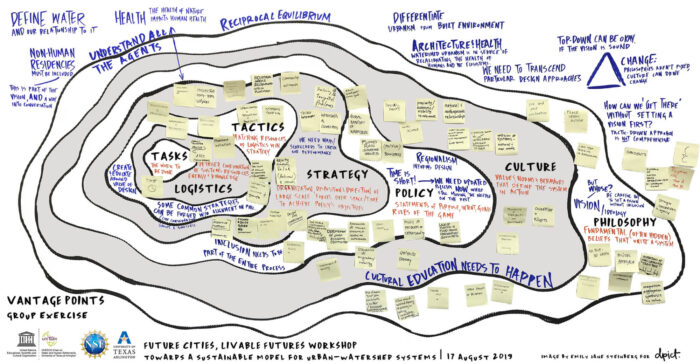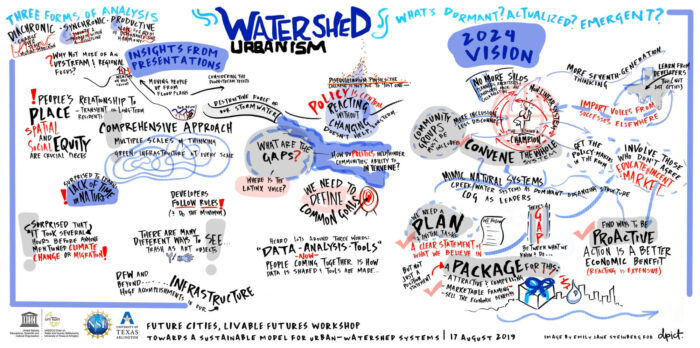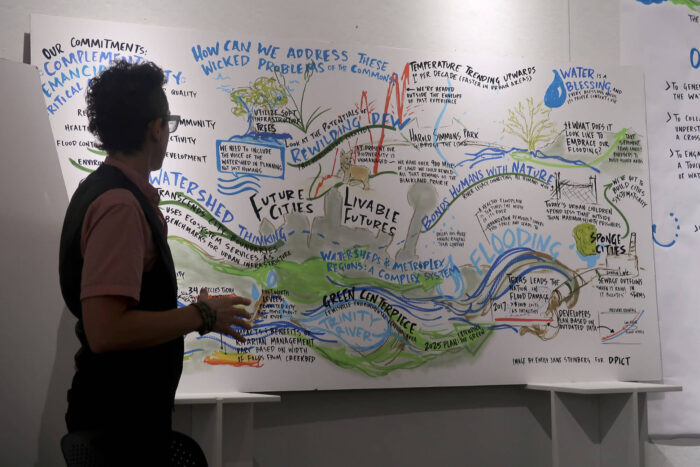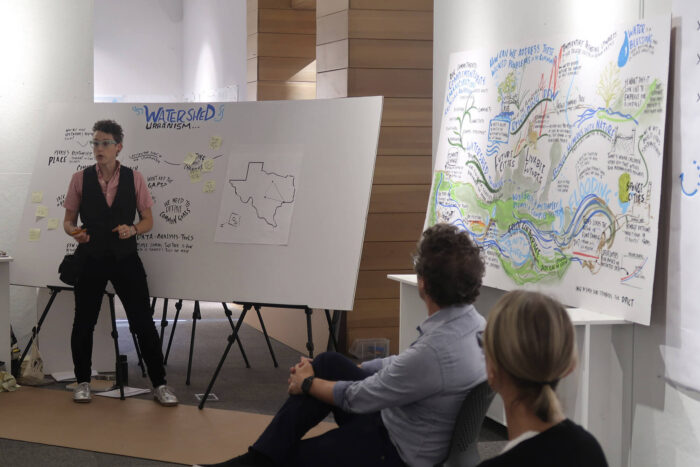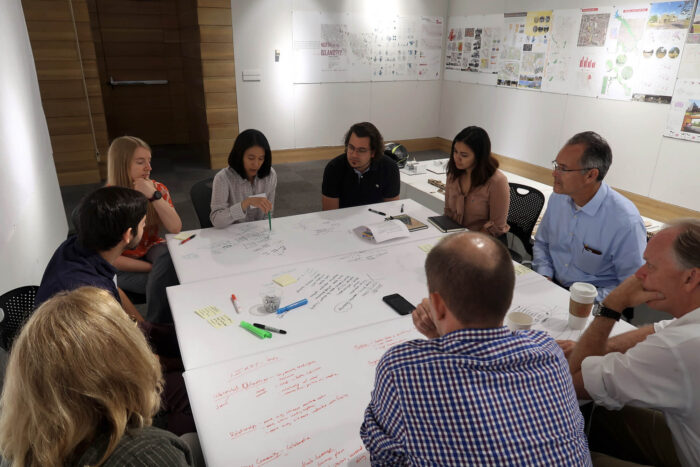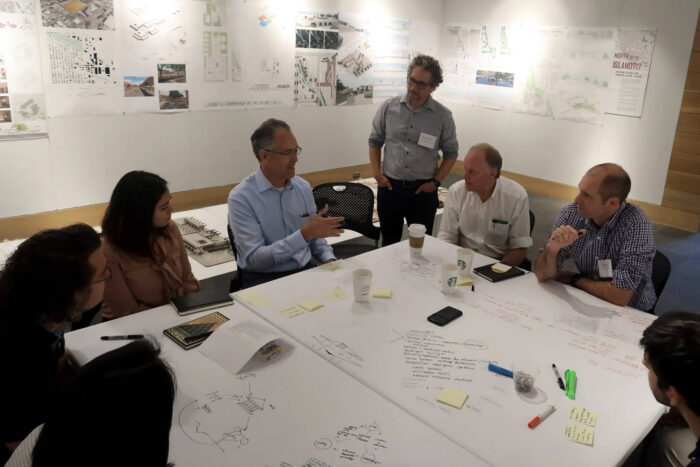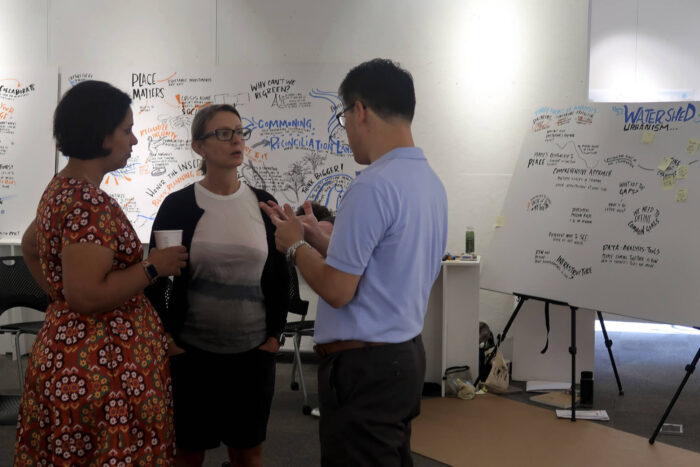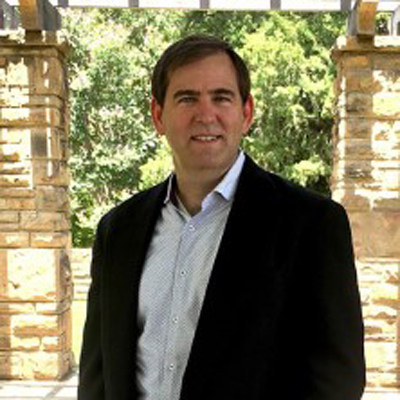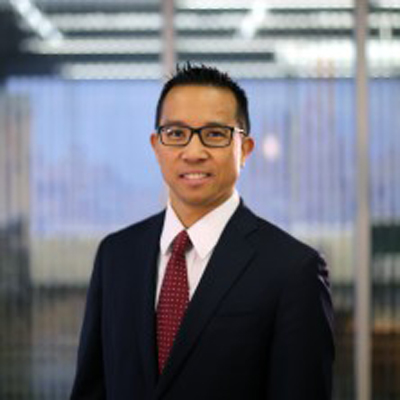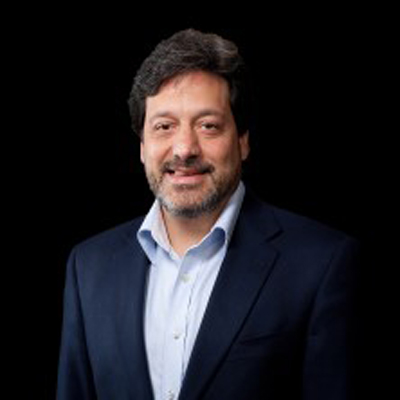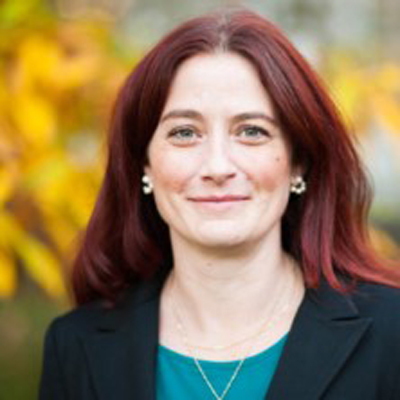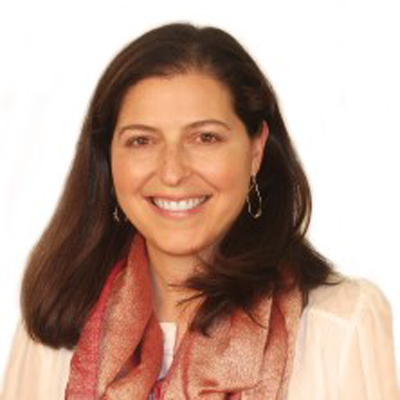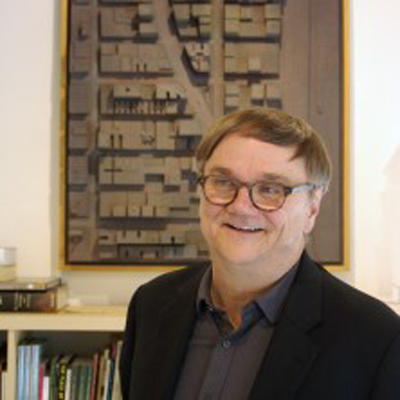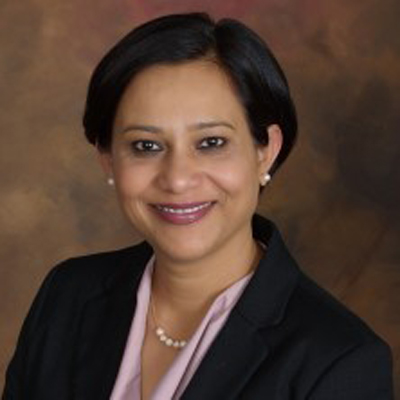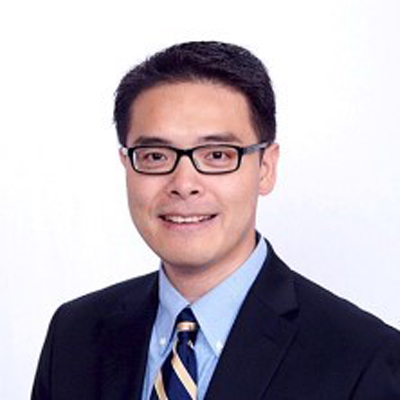August 16-17, 2019
EVENT
The 2019 Future Cities; Livable Futures: Towards a Sustainable Model for Urban-Watershed Systems conference and workshop provided a platform to introduce cross-disciplinary dialogues around sustainable urban-watershed management and explore best practices to explain and better understand the different factors that interact to form an urban-watershed system.
This event was funded by a NSF Sustainable Urban Systems Grant Award #1929945.
Description:
As the global population continues to grow, cities must address the challenges and opportunities of urban watersheds, urban and surrounding lands that contribute runoff to a particular water body such as a river. To do this effectively, cities must use a systemic approach that integrates perspectives of science, engineering, design, planning, and policy, while incorporating input from citizens along the water’s edge.
The “Future Cities, Livable Futures: Toward a Sustainable Model for Urban-Watershed Systems” conference workshop were held at the University of Texas at Arlington in the Dallas-Fort Worth (DFW) metroplex on August 16 and 17, 2019, to discuss approaches to these complex problems. Participants had an opportunity to discuss and evaluate the environmental impacts from transportation and related infrastructure systems, climate change, and economic and population growth on the Trinity River Watershed from a variety of disciplinary perspectives to examine the complexities of urban-watershed systems. The future of the Trinity River Watershed was utilized as a relevant model for future urban watershed management and planning across the United States. The conference provided a great platform to introduce cross-disciplinary dialogues around urban-watershed management, explore best practices, and explain and better understand the different factors that interact to form an urban-watershed system. This event resulted in interdisciplinary research partnerships targeted at developing research initiatives on the creation and stewardship of sustainable urban watershed systems.
The invited workshop on day 2 incorporated a unique participatory approach through the incorporation of a graphic facilitator, integrating design thinking and systems thinking to explore the needs of different stakeholders and the concrete constraints that hydrological and human-made systems impose on urban watersheds, while also examining the manner in which these needs and constraints reinforce social inequity and economic disparity. The conference began with cross-sector presentations on best practices and the workshop provided hands-on re-imagination of the future of the Trinity River Watershed system.
With inputs from participants, the principal investigators identified activities and research areas that would engage stakeholders and collaborators in future endeavors with positive impacts on future urban watershed development in the DFW region and other cities in the United States. Systems sciences were applied to decipher how different social, environmental, and economic factors, patterns, and behaviors of the urban watershed interact to form a complex system. Network analysis was explored for the study of the urban watershed as a dynamic system in order to simulate the heterogeneous factors that interact and constitute urban-watershed relationships. Based on the information gathered from the conference, the conference and workshop participants were better able to understand the interactions among environmental, social, and economic variables within a dynamic system.
CONFERENCE OUTCOMES
WORKSHOP OUTCOMES
PROJECT OUTCOMES
The overarching goal of the Future Cities, Livable Futures: Toward a Sustainable Model for Urban-Watershed Systems conference was to bring together cross-disciplinary experts to step out of their disciplinary roles and be part of a cross-disciplinary, holistic exploration of urban watershed systems involving the different representatives of governmental and non-governmental agencies, engineers, designers, developers and community members to collectively explore how to create sustainable futures in cities and communities that exist along urban watersheds.
Read more.
AWARDS
The University of Texas at Arlington leads the Regional Centre of Expertise North Texas. We are part of the United Nations University (UNU) Institute for the Advanced Study of Sustainability (UNU-IAS). The 2019 Future Cities; Livable Futures event received an award from the Global RCE Service Centre for the “Education for Sustainable Development (ESD) Project” competition. According to the Global RCE Service Centre, the event was awarded as follows:
“Acknowledged Flagship Project for its role in contributing to SDG 15: Life on Land. This award is given annually to RCEs that have made outstanding contributions to address local sustainable development challenges in their regions.”
SPEAKERS
AGENDA
Friday, August 16, 2019
Morning
8:30-9:00 – Registration and Breakfast
9:00-10:30
Mayor Jeff Williams
Opening remarks
Dean Adrian Parr
Opening remarks
Brandi Schottel
Introduction
H2Otalks
Glenn Clingenpeel
History of the Trinity Watershed
Donna Barron
Policy and Community Engagement
Jaynie Schultz
The Unheard Voice in Land Use
Jerry Cotter
Management of Watershed System
10:30-11:00 – Coffee Break
11:00-12:30 – H2Otalks
Vincent Lee
Green and Blue Infrastructure
Stacey Pierce
Confluence – Fort Worth Streams and Valleys
Becky Nussbaum Gerro
River Legacy Living Science Center
Elizabeth Silver
Harold Simmons Park Dallas
John Nielsen-Gammon
Climate Change
Kevin Sloan
Rewilding
Steve Luoni
Watershed Urbanism and Low Impact Design
Afternoon
12:30-1:30 – Lunch
1:30-2:30
Panel 1: Water and Flooding
Moderator: Nick Fang
2:30-3:30
Panel 2: Nature and Real Estate
Moderator: Michael Zaretsky
3:30-4:00 – Coffee Break
4:00-5:00
Panel 3: Watershed Urbanism
Moderator: Meghna Tare
5:00-5:30 – Closing Remarks
5:30-7:00 – Reception
Saturday, August 17, 2019 at 9am
Closed Research Session by Request Only
PANEL
1.Water and Flooding,
Moderator: Nick Fang
Phil Bedient
Director, SSPEED Center, Rice UniversitY
Jerry Cotter
Head of Water Resources, FWD of US Army Corps of Engineers
Tim Dekker
President, LimnoTech
Edith Marvin
Director of Environment & Development, NCTCOG
John Nielsen-Gammon
State Climatologist, Texas A&M University
2.Nature and Real Estate,
Moderator: Michael Zaretsky
Paris Rutherford
Principal, Catalyst Urban Development, Dallas
Ben Sandifer
Naturalist, Dallas
Elizabeth Silver
Associate Principal at Michael Van Valkenburgh Associates in NYC
Karen Walz
Principal, Strategic Community Solutions
3.Watershed Urbanism,
Moderator: Meghna Tare
Diane Jones Allen
Program Director of Landscape Architecture and Associate Professor, UTA
Susan Alvarez
Assistant Director, Office of Environmental Quality & Sustainability, City of Dallas
Robert Kent
State Director-Texas, Trust for Public Land
Stephen Luoni
Director and Principal Designer, Community Design Center, University of Arkansas
Hope Rising
Assistant Professor, Department of Landscape Architecture and Urban Planning, Texas A&M University
Kevin Sloan
Professor of Practice in Architecture, University of Texas at Arlington and Landscape Architect for Kevin Sloan Studio
DIRECTORS
COORDINATING TEAM
SPONSORS
![]()































